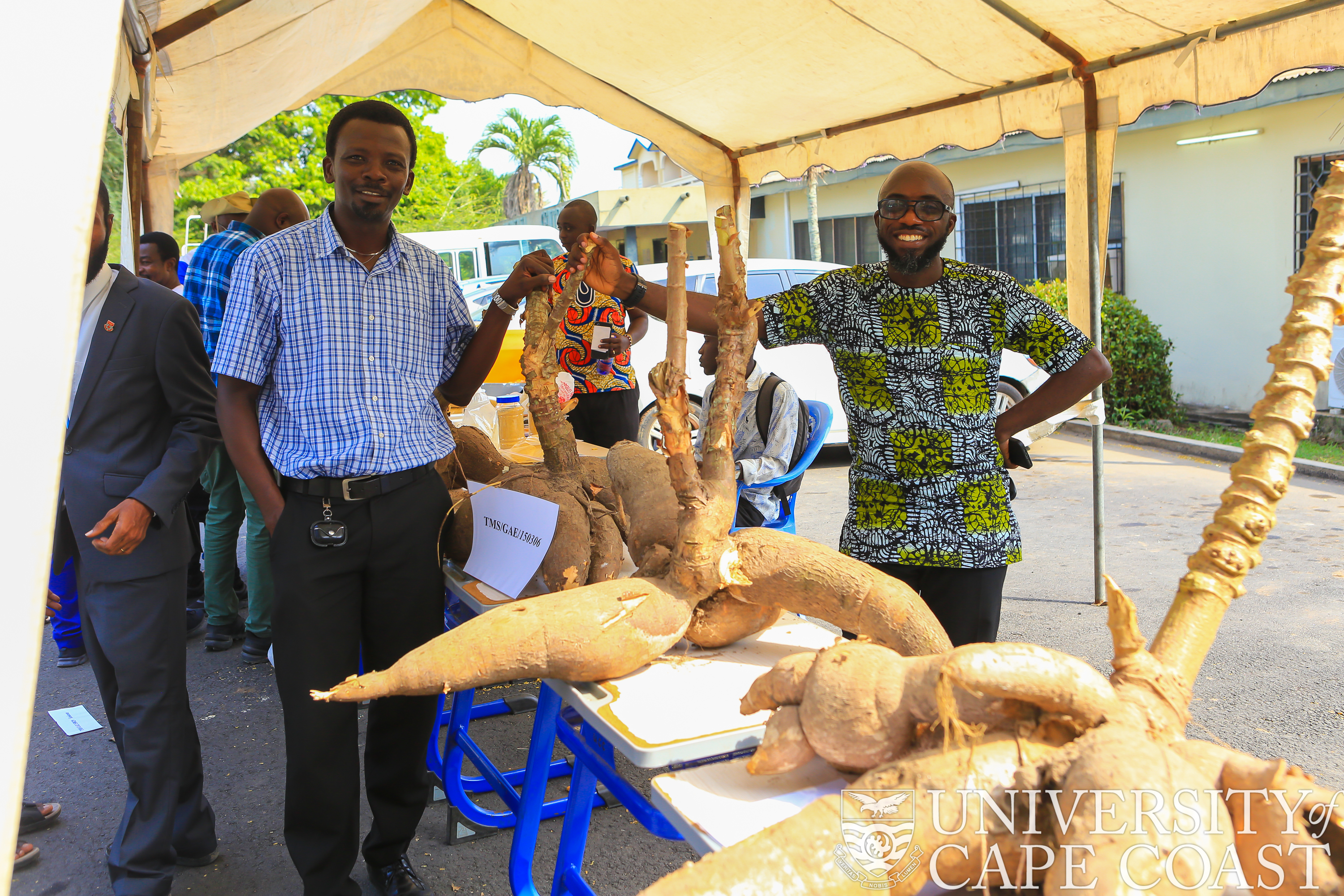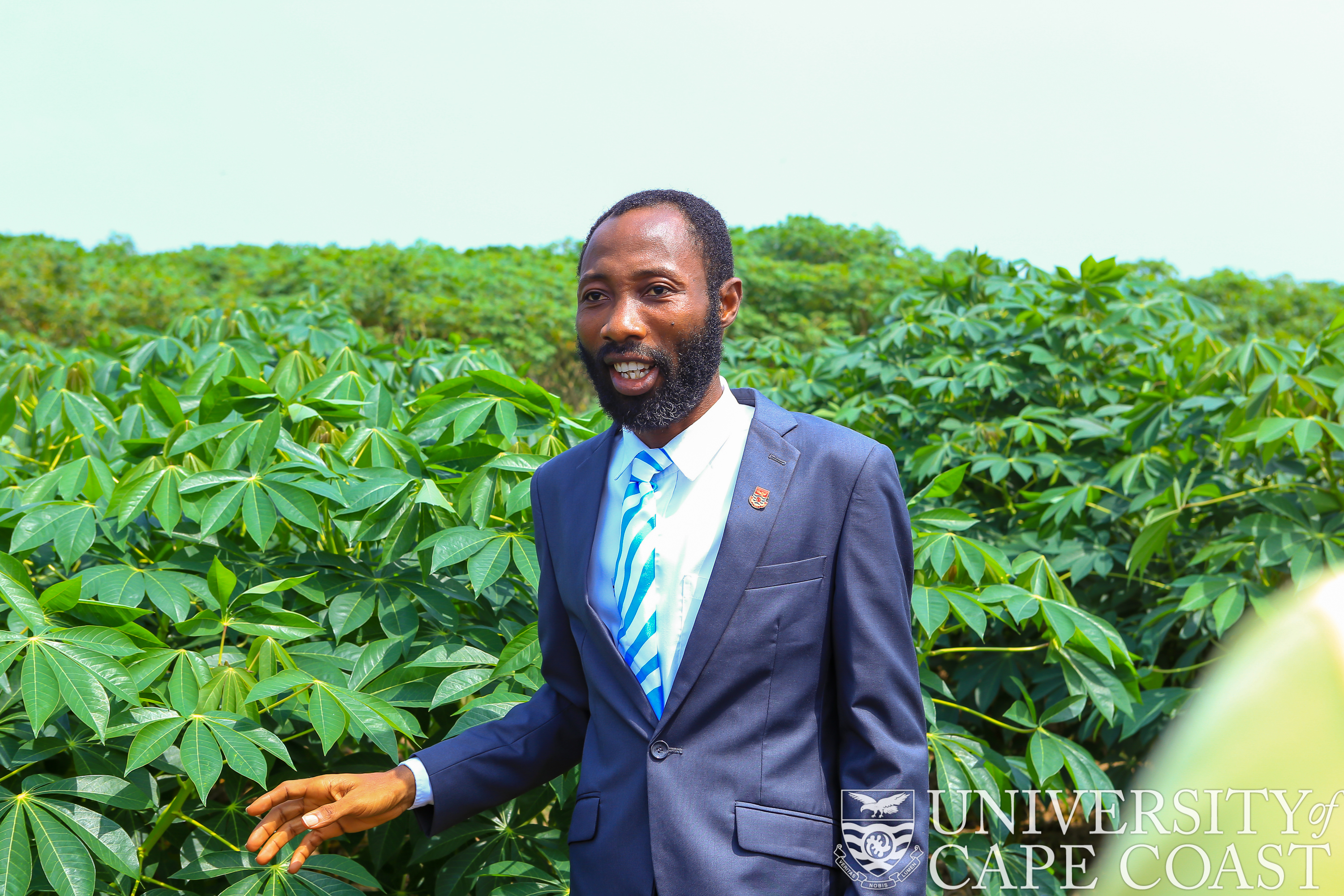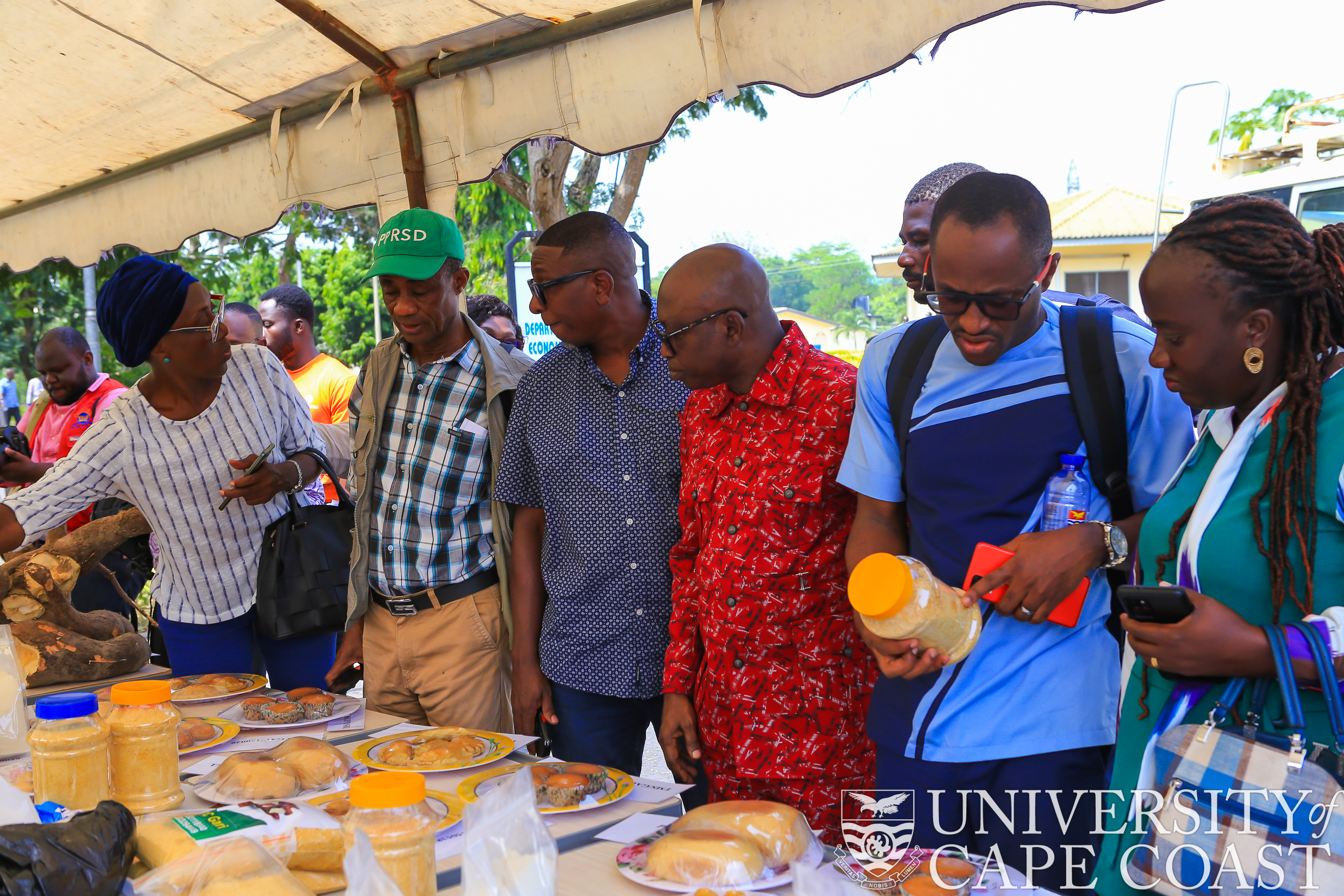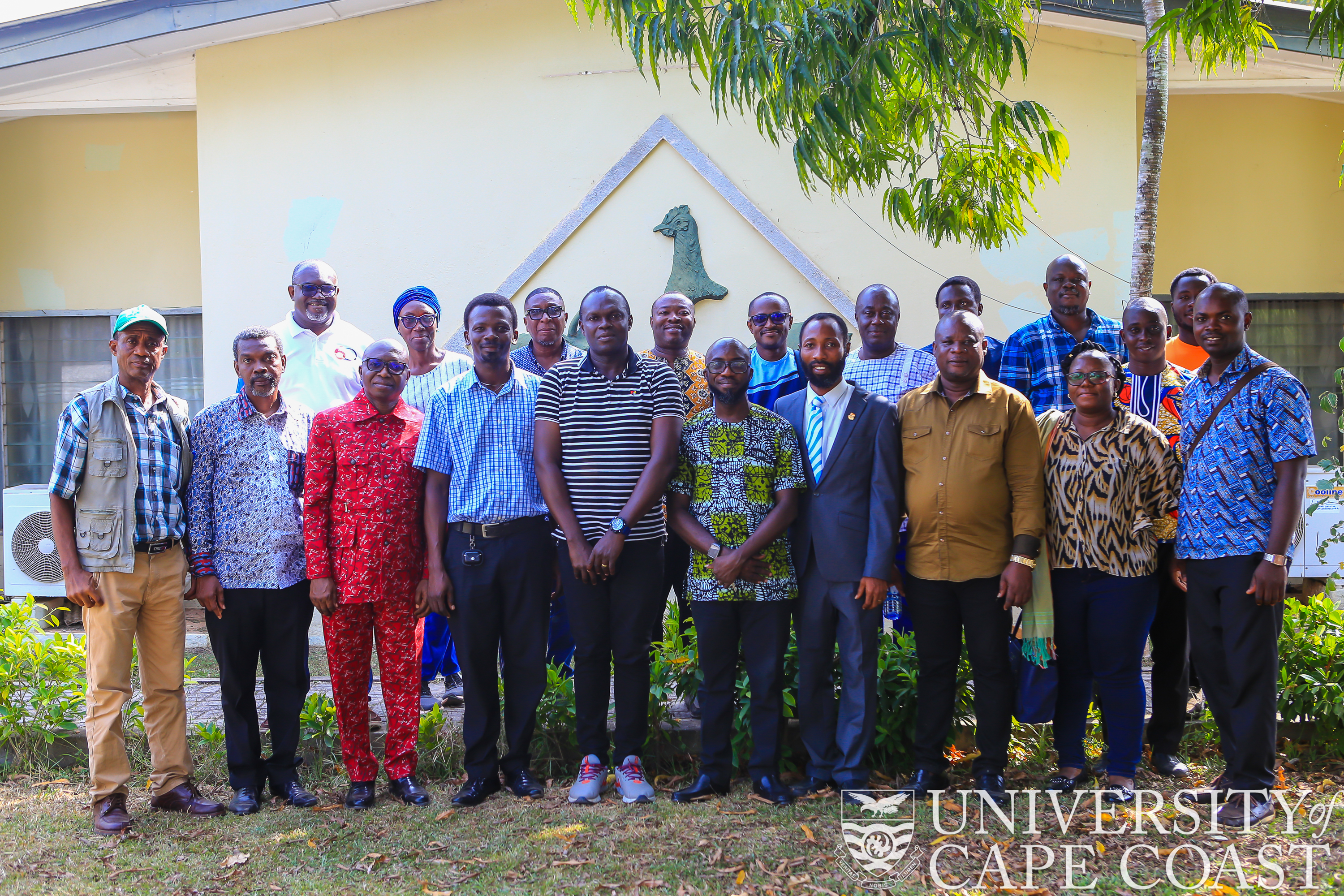The Department of Crop Science of the School of Agriculture at the University of Cape Coast (UCC) has released four new yellow-fleshed cassava varieties.
The varieties, Hewale Duade, Adom bankye, Taah bankye and Atsike gbeli, were developed through a collaborative effort between the BINARI-GAEC and International Institute of Tropical Agriculture.
Purpose
These varieties are designed to be high-yielding, rich in beta-carotene, resistant to major biotic stresses, particularly CMD, and possess farmer-preferred traits such as high dry matter content and mealiness. This project aims to improve food security, enhance nutrition, and contribute to Ghana’s agricultural resilience by introducing these nutrient-dense varieties. Adopting these new varieties is anticipated to support public health goals and drive sustainable growth within Ghana’s agricultural sector, benefiting local communities and the expanding cassava-based industries.
A Renowned Cassava Expert and Lecturer at the Department of Crop Science, Dr. Emmanuel Ogyiri Adu, who presented the varieties before the body in charge of officially releasing varieties, that is the National Varietal Release and Registration Committee (NVRRC) for consideration and approval, said the varieties were high-yielding, rich in beta-carotene, and above all possessing farmer preferred traits such as high dry matter content and mealiness which makes them easy poundable into fufu and eaten as ampesi.
Dr. Emmanuel Ogyiri Adu explaining a point during the field inspection
“The introduction of these nutrient-dense varieties will improve food security, enhance nutrition, reduce malnutrition in children and above all contribute to Ghana’s agricultural resilience,” he continued.
Dr. Ogyiri Adu urged stakeholders to adopt these new varieties rich in vitamin A for gari production, particularly for Senior High Schools, where gari is widely consumed.
Commercialization
The Cassava Expert said the Department of Crop Science and the School of Agriculture had plans to scale up production by cultivating over 30 acres of cassava at the University’s 419 acres at Twifo Wamaso. “The purpose is to supply planting material to farmers nationwide and also to process and sell vitamin A biofortified gari to the University community and especially students at a very affordable price,” he added.
He also noted that the next phase involved training of farmers on cultivation techniques, good agronomic practices and also providing planting materials for large-scale replication.
Field inspection and exhibition
At the field, Dr. Emmanuel Ogyiri Adu (Lead Investigator) explained the unique characteristics of the four yellow-fleshed cassava varieties to the team members. There was an exhibition on various products such as cassava flour, cassava cake, cassava pie, cassava doughnut, gari, kokonte, agbliklakro, fufu and ampesi.
Keystakeholders at the exhibition
Research
The proposed varieties were mutants developed by Dr. Godwin Amernope, a Principal Research Scientist at BNARI-Ghana Atomic Energy Commission and IITA collaboration from 2014 to 2017. In 2017, these promising genotypes were distributed to the Department of Crop Science, UCC as part of the doctoral thesis of Emmanuel Ogyiri Adu for Advanced yield, Multi locational, On- and Off- Farm Trials aimed at varietal release. After seven years (2017 -2024) of advanced yield trials and farmer-field testing by the Department of Crop Science under the School of Agriculture of the University of Cape Coast these cassava genotypes were evaluated for their stable yields (33–45 t/ha), high beta-carotene content (6–10 µg/g), high dry matter (27–36%), low hydrogen cyanide levels (30–40 mg/100 g), mealiness and resistance to CMD.
Commendation
The Director, Crop Services MoFA and Chairman for NVRRC, Dr. Solomon Gyan Ansah, lauded the collaboration between UCC, the BINARI-GAEC, and the Institute of Tropical Agriculture (IITA). Dr. Gyan Ansah confirmed that the varieties were high yielding, elevated carotenoid content, mealiness, resistance to CMD and high dry matter content.
Chairman of NVRRC, Dr. Gyan Ansah addressing the gathering
Recommendation of the four yellow fleshed cassava
After inspecting the crops on the field and assessing the presentations on each of the proposed varieties, the Chairman of NVRRC, Dr. Gyan Ansah, said the four yellow- fleshed cassava had been recommended for release considering their substantial benefit to the nation and the agriculture sector.
In a closing remark, the Head of Department of Crop Science, Prof. Michael Osei Adu, expressed gratitude to the NVRRC for accepting all the proposed varieties. He asked for more collaborations between MoFA and the University to ensure proper sanitizing and multiplication of the varieties to farmers.
Project Support
The project received substantial support from the International Institute of Tropical Agriculture (IITA), with Dr. Elizabeth Parkes of IITA-Zambia playing a pivotal role in securing funding. Other key contributors include Peter Ilelubey of IITA, Dr. Godwin Amernope, Principal Research Scientist at BINARI-GAEC and the Vice chancellor of UENR, Prof. Elvis Asare Bediako, who initiated the collaboration with UCC.
Appreciation
Dean of the School of Agriculture, Prof. Henry De-graft Acquah, the Vice Dean of the School of Agriculture, Prof. Paul Agu Asare, the Head of the Department of Crop Science, Prof. Michael Osei Adu, former Head of the Department of Crop Science, Prof. Kingsley Taah, James Nyarko Amoah, a Technologist and all farmers that were involved in the on-farm trials.
The event was chaired by Dean of the School of Agriculture, Prof. Henry De-graft Acquah.





